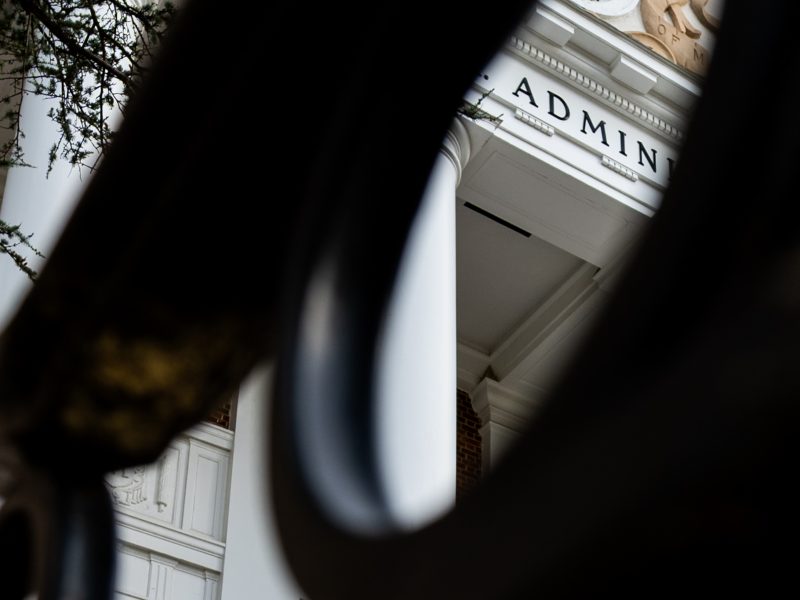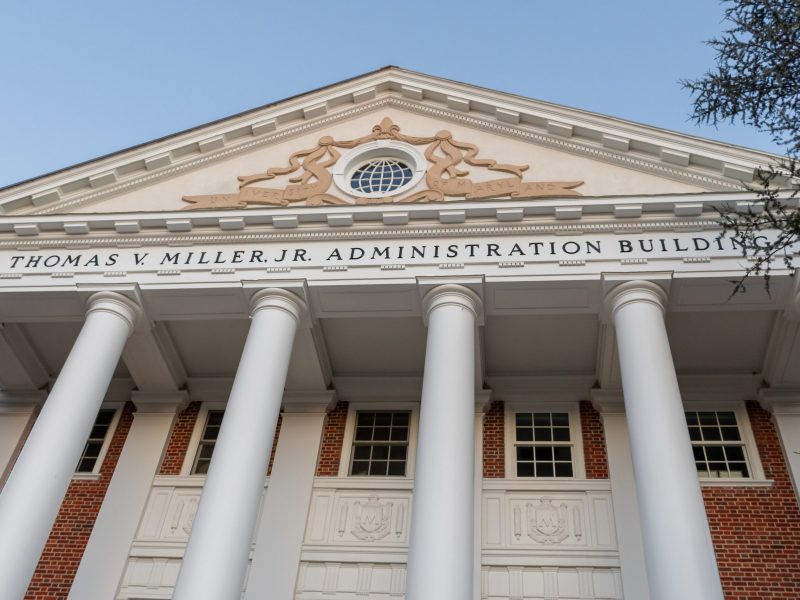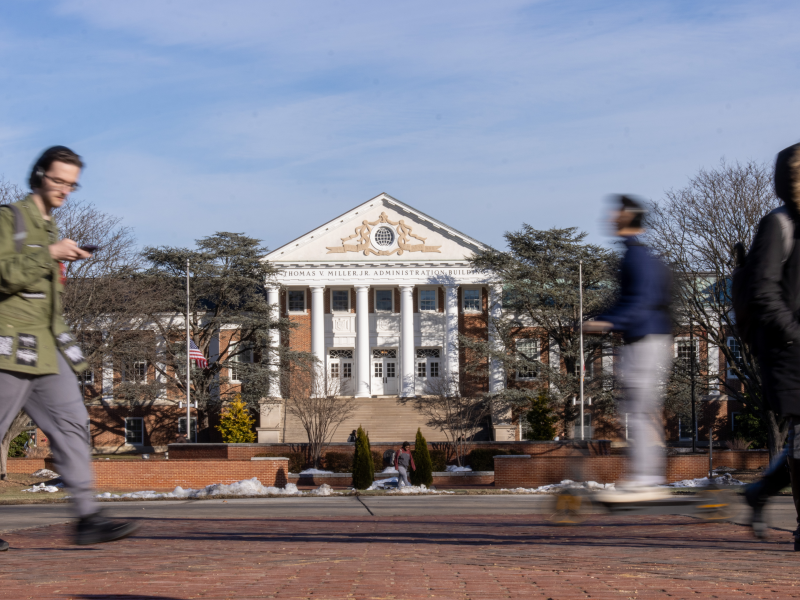Georgetown. Tufts. Stanford. What do these schools have in common? Each of these universities has divested from fossil fuels, which means they have committed to removing all investments from dirty energy. Will this university join that list? I’m determined that our students will make it happen.
On March 23, more than 100 students gathered in the Baltimore Room of Stamp Student Union for Divestapalooza, an environmental justice rally urging the University System of Maryland to divest from fossil fuels and to invest only in clean energy.
The event was hosted by the Student Sustainability Committee, of which I am the communication director. Our committee is one of the largest within the Student Government Association with more than 35 regular members. We work toward making the university and College Park as sustainable as possible, as well as raising awareness about environmental sustainability issues.
Attendees of our rally enjoyed food, T-shirts, live music and guest speakers as they were encouraged to sign a petition urging the university system to remove its money invested in the fossil fuel industry. The university system’s foundation has an estimated $70 million invested in the energy sector, primarily in oil and natural gas. This kind of money could be much better spent on renewable or clean forms of energy, or be used to support sustainability projects in which this university seems to pride itself on.
Bill McKibben, founder of anti-carbon campaign group 350.org, prepared a special video for Divestapalooza in which he challenged students not to settle for the current state of the environment and to keep pushing for a more sustainable university and community.
“Now is the moment to push; now is the moment to help the university see where its future lies,” McKibben said.
Tyson Slocum, director of Public Citizen’s energy program and an Honors College lecturer, attended the rally as well, with a few of his colleagues, all donning “Fossil Free MD” stickers.
Slocum, who made a 2006 Colbert Report appearance in support of renewable energy, delivered an inspirational speech, imploring the attendees to keep up the good work and take action toward a greener future. “Moving on from fossil fuels isn’t a choice; it’s a requirement,” he said.
In between the performances and speakers, Willem Klajbor, Big Ten Divestment Coalition captain, and Maya Spaur, director of the sustainability committee and Fossil Free MD, joined me in speaking to the audience about divestment.
“The goal of SSC’s divestment campaign is to make aware to UMD students, faculty, and community members that the university should take a stand against the fossil fuel industry,” Klajbor said. “Our university should be investing in its students, not betting against us.”
We began our divestment coalition last fall, with sign-ons from other university system schools, D.C.-area universities and Big Ten institutions. We’re planning on having a big showing on April 26, when we will once again meet with the university system’s foundation to discuss divestment.
“For the University of Maryland to live up to its goals of being a green model for the nation, we must divest from fossil fuels — and we must make this commitment today,” Spaur said. “This is an issue of right and wrong; let’s be true leaders and act rightly. Let’s commit to providing for future generations by divesting responsibly over five years.”
It looks like the energy revolution has already begun, and it’s now time for this university community to make a significant difference and persuade the university system to divest from fossil fuels.
Jay Deep Rao is the communication director for the SGA Student Sustainability Committee and a junior environmental engineering major. He can be reached at deepjayrao@gmail.com.



